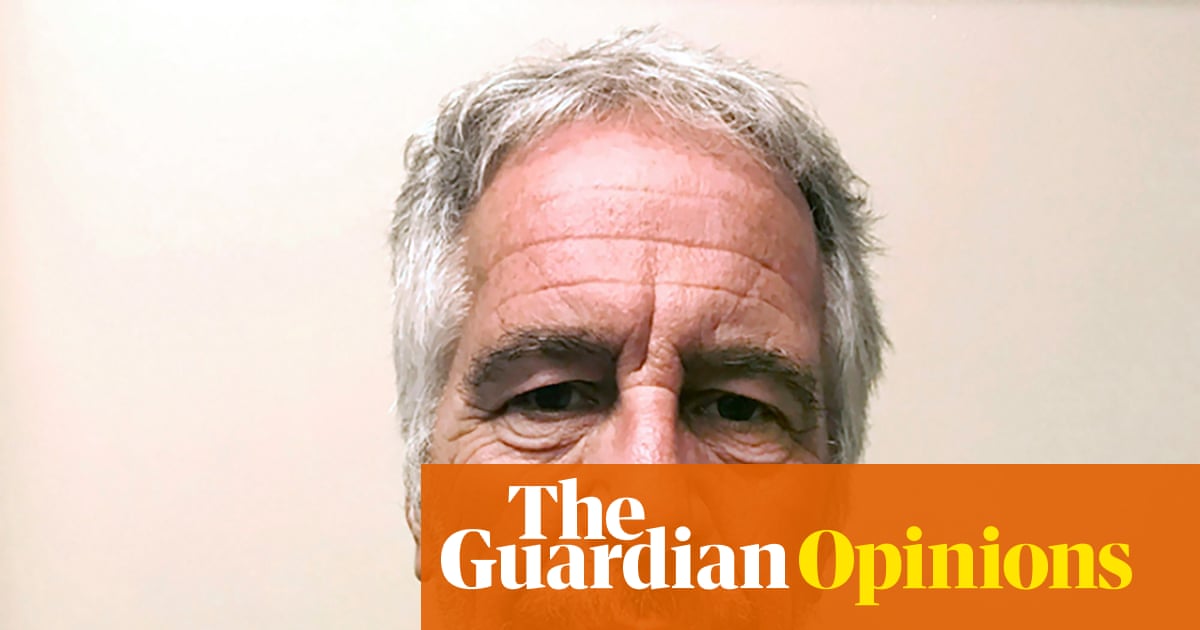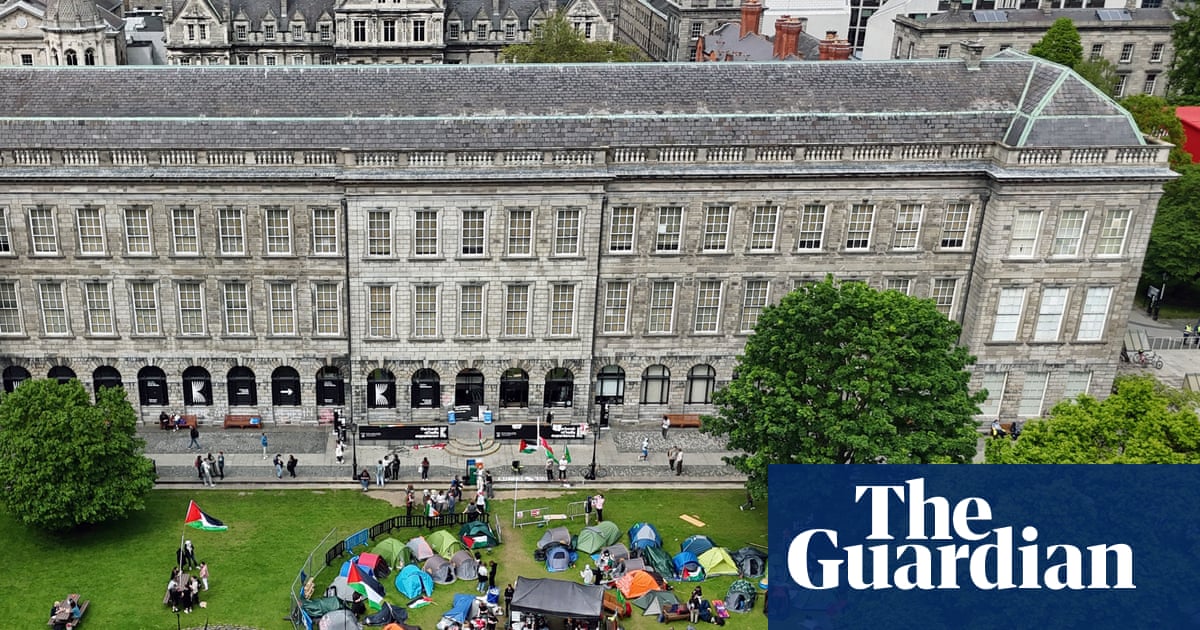Missiles follow trajectories. So do countries. And over the past few days, Israel’s attacks have dramatically changed Iran’s trajectory.
Some believe that Iran was already on a downward spiral and that Israel’s actions will simply accelerate the descent. In an op-ed published on Monday, several of Iran’s most prominent civil society figures, including Nobel peace prize laureate Narges Mohammadi, declared that the “only credible path to safeguard [Iran] and its people is the resignation of the current leadership”. In this view, the war could be construed as a deliverance – Israeli officials are openly suggesting that their operations could lead to regime change in Iran. But if Iran’s decline was already precipitous, why are ordinary Iranians terrified by the outbreak of war? Why have they not welcomed Benjamin Netanyahu as the saviour he imagines himself to be?
The answer is that Israel is harming, not improving Iran’s trajectory, the arc of which had recently been bent upwards through the persistent efforts of the Iranian people. Iran has long undershot its potential, held back by a sclerotic and oppressive government that has failed to undertake necessary reforms. Yet despite many headwinds, the country has been experiencing slow but steady improvements in its political, economic and social conditions over the past few years. Iran’s people have been successfully pushing back against the authoritarian tendencies of the leaders in Tehran. Now they have been thrust into a war devised by an authoritarian leader in Jerusalem.
When the hardliner president Ebrahim Raisi died in a helicopter crash a little over a year ago, Iran’s political establishment reconsidered whether the authoritarian consolidation that had taken place during his term had been worthwhile. Manipulation of elections and brutal suppression of protests had left Iran’s ruling elite distrusted and unpopular. Iran’s current president, Masoud Pezeshkian, was elected to repair Iran’s social contract. His first speech as president included an important admission. “We make promises, and we fail to fulfil them,” he said, acknowledging the degraded legitimacy of the Islamic Republic. Less than a year into his tenure, and until the fateful events of the last few days, Pezeshkian had made some modest progress in trying to regain the trust of the electorate.
Iran’s leaders have had to acknowledge the power and perseverance of Iranian women, who mobilised during the Women, Life, Freedom movement in 2022 and never looked back. When the Iranian parliament passed a draconian mandatory veiling law late last year, Pezeshkian described it as an “unjust law”, a confession that the Islamic Republic will itself remain unjust so long as it fails to protect the rights of women. No longer a fringe issue, women’s rights are now at the forefront of the fight for political renewal in Iran.
Pezeshkian had also presided over a modest economic recovery, though he does not deserve credit for it. Despite the pressure of US sanctions, Iran’s economy had returned to growth, owing to the resourcefulness of the managerial class and resilience of the workforce. But in recent months, inflation rebounded, and the country was rocked by major protests over controversial fuel subsidy reforms, underscoring the need for better management of the economy. On Monday, Iran’s parliament confirmed Seyed Ali Madanizadeh, a young economist trained at Stanford University and the University of Chicago, would become economy minister. In an interview last week, Madanizadeh stated that economic reforms “are not something that can happen without bringing people on board and opening up a dialogue with the public”.
But it is in the space of foreign policy that Iran’s course has altered most dramatically. Six years of intensive dialogue with regional neighbours, especially the UAE and Saudi Arabia, has led to renewed ties. In just the last few months, Tehran hosted the emir of Qatar, the diplomatic adviser to the president of the UAE, and the defence minister of Saudi Arabia. The new regional policy was summed up by the Iranian foreign minister, Abbas Araghchi, when he stated: “Our neighbours are our priority.”
Even Iran’s relationships with its proxies have changed. Iran moderated its support for the Houthis as part of a deal reached with Saudi Arabia in March 2023. More recently, the fall of Bashar al-Assad and Israel’s hobbling of Hamas and Hezbollah were strategic setbacks for Iran. But these events also gave rise to a robust debate among Iran’s national security leaders about whether the “forward defence” strategy, rather than making Iran more secure, had given rise to anti-Iranian sentiment across the region, while still leaving Iran vulnerable to attack.
Finally, and most consequentially, Iran was negotiating a nuclear deal with the US. The seriousness of these negotiations should be underlined. President Donald Trump tore up the nuclear deal in 2018 at a time when Iran was in full compliance with its commitments. He reimposed sanctions, pushed Iran’s economy back into steep recession, and brought the region to the brink of war by assassinating Gen Qassem Suleimani in January 2020.
Not long after Trump was inaugurated for his second term, Iran’s supreme leader, Ali Khamenei, called negotiations with the United States “unwise”. But senior officials, including Pezeshkian, Araghchi and parliament speaker Mohammad Bagher Ghalibaf, pushed back. They may have done so because of personal convictions, but they probably recognised that the Iranian people are tired of enmity with the US, which has left Iran isolated and embattled.
The first round of negotiations took place on 12 April. Four subsequent rounds were conducted in just two months – the progress was evident enough that even Israeli officials were briefing journalists that a deal between Iran and the US was “likely”. A sixth round of negotiations was slated to take place on Sunday in Oman. Those talks were cancelled after Israel’s attacks, which Trump cheered.
The Iranian people have struggled for over a century against forces of authoritarianism, which can seem endemic in the Middle East. At numerous junctures, foreign intervention has undermined their efforts. In 1911, a constitutional revolution was crushed with the intervention of Russian troops. In 1953, Iran’s elected government was ousted in a coup engineered by the CIA and MI6. In 1980, the course of the Islamic Revolution was altered when Saddam Hussein invaded Iran. In 2018, Trump withdrew from the nuclear deal, dooming Iran’s once influential and popular reformist movement, which had staked so much on the promise of sanctions relief.
With each of these setbacks, ordinary Iranians persisted. Until a few days ago, something was shifting in Iran. Tentatively but noticeably, the country was moving in a better direction, pushed and pulled by 90 million souls yearning for greater security, prosperity and liberty.
Seen in this context, Israel’s attacks demonstrate a contempt not just for life – the civilian death toll in Iran is mounting – but also a contempt for the agency and aspirations of the Iranian people. They did not want this war and they were pushing their leaders to avoid it, but Israel chose to attack to prevent a new nuclear agreement between the US and Iran.
The Iranian people are no longer in control of their futures, and they find themselves watching the trajectories of ballistic missiles, wondering what could have been.

 2 months ago
48
2 months ago
48

















































